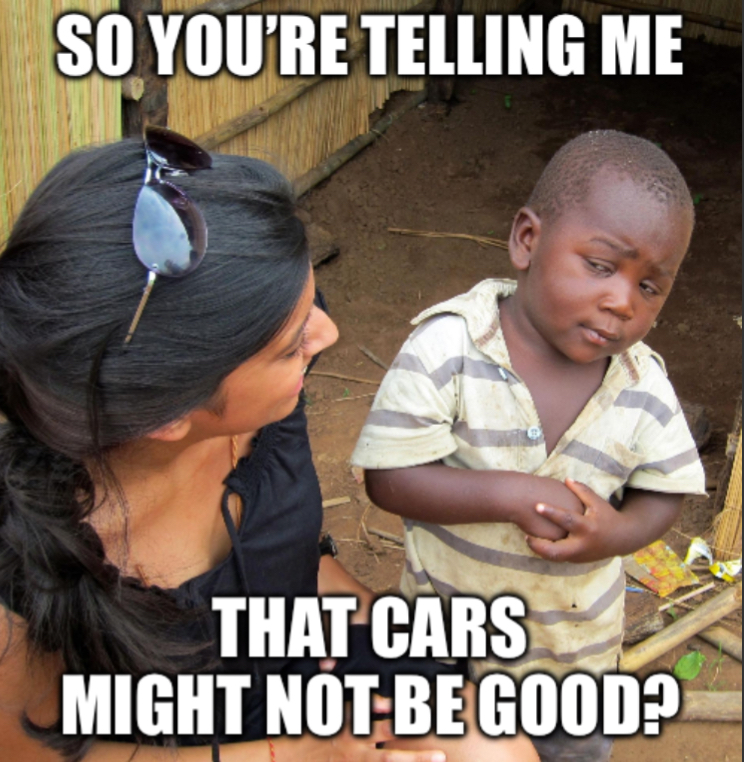- cross-posted to:
- [email protected]
- cross-posted to:
- [email protected]

Thank goodness that’s on .world and not on that Lemmy NSFW instance.
Hey hey hey, this isn’t J.D. Vance’s instance. And that’s not a couch. Although bench seats pretty much are a couch
I’m sure J. D. Vance isn’t all that picky if he can’t find a couch.
did you read crash by JG Ballard?
I was in London last month, the city is amazingly quiet because of all the electric cars, buses, taxis etc. I read it’s like, 70% of all London City traffic is electric? It’s beautiful.
I live in Greater London and I’m right past a busy street going straight in London. I see a good number of electric vehicles but it’s nowhere near 70%. Do you remember where you read that? I’m curious to check the rate of progress. (I would love for my street to be quieter)
deleted by creator
They estimate because they are comparing measured amounts to a counterfactual where they didnt expand ulez, which obviously requires estimation.
deleted by creator
They did present the data on the measured* levels and changes over the period, tables 43 and 44. And table 45 shows the observed trend and the counterfactual that they estimated in order to estimate the impact. (as womble pointed you can’t measure an impact outside of a laboratory on something with complex influences, because you can’t measure the counterfactual).
They don’t want to attribute the whole meaasured improvement in air quality to ULEZ, as some of the change should attributed to other influences or pre-existing trends.
- of course you just can’t measure 100% of the air in a place accurately without asphyxiating the people in it, so they use data from an array of detectors sampling the air at regular intervals.
Hey, thank you so much for looking into it and checking it for me, I really appreciate that.
Clearly I was wrong here, I apologise for not checking the report closely enough, though I think they probably should have mentioned that they had measured and seen an impact. I totally understand why they don’t want to claim that impact is totally caused by their changes but from my cursory reading it didn’t seem like they had measured anything at all.
Going to edit or delete my previous comments to retract them.
yeah, studies like that need to do a lot of work - if they’re any good - and look at a a lot of different angles… The news articles usually do a terrible job of explaining such studies and the strengths and weaknesses - so it is hard to see the real evidence base or assess how much weight to put on it.
Unfortunately, in my opinion - the best way to know if such studies are any good is to ignore the news article completely , find the the full paper and spend a bit of time trawling through it.





